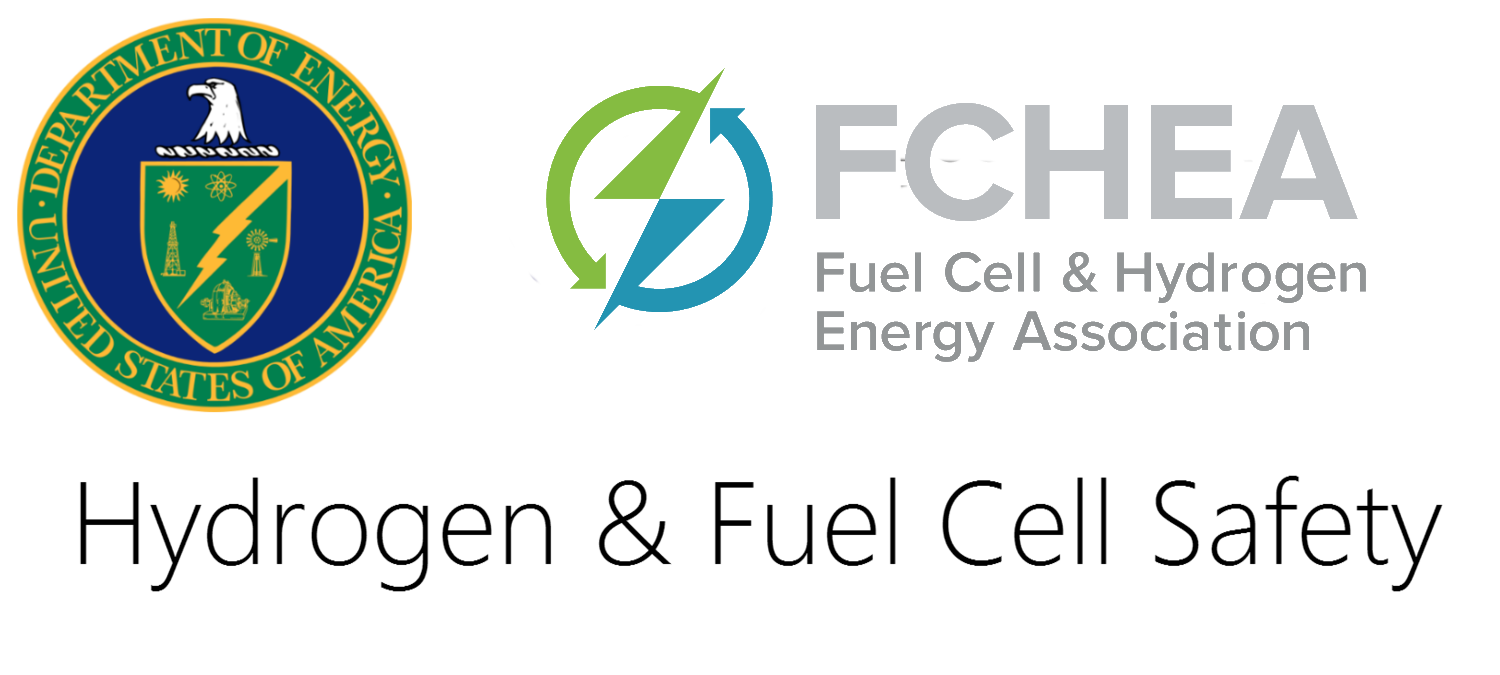May 2009 Safety Report
Results from an Analytical Investigation of Small-Scale Releases from Liquid Hydrogen Storage Systems
William Winters, Sandia National Laboratory
IEEE Approves Standard for Connecting Fuel Cells, Photovoltaics to National Grid
NFPA’s Hydrogen Research Advisory Council Releases “Research Needs in Support of Hydrogen Safety Standards” Report
Achievements of the EE Network Of Excellence Hysafe
Thomas Jordan, Forschungszentrum Karlsruhe
4th International Short Course in the "Progress in Hydrogen Safety" Series Announced
Fourth European Summer School on Hydrogen Safety (ESSHS) Website Now Active and Accepting Applications
National Hydrogen and Fuel Cells Codes & Standards Coordinating Committee Teleconference - April 2009 Minutes
Chad Blake, NREL
Results from an Analytical Investigation of Small-Scale Releases from Liquid Hydrogen Storage Systems
William Winters, Sandia National Laboratory
A need exists for developing codes and standards to support the wide-spread delivery of liquid hydrogen bulk fuel and fueling station storage. To develop these codes and standards the consequences of planned and unplanned hydrogen releases must be understood. The systems under consideration are mainly those used in supplying hydrogen for transportation. These systems include production storage tanks, tanker trucks and tanks located at vehicle fueling stations. Typically these systems store hydrogen in the saturated state at approximately 11 atmospheres. Storage vessels are heavily insulated and sometimes actively cooled to minimize the rate of hydrogen boil-off (intended hydrogen release).
- Download the Full Paper (576Kb PDF)
NFPA’s Hydrogen Research Advisory Council Releases“Research Needs in Support of Hydrogen Safety Standards” Report
This report presents the results of the Hydrogen Research Advisory Council’s work during 2008-2009. The Council was established in 2007 to identify and evaluate research needed to support the development of hydrogen safety requirements in the NFPA codes and to make recommendations on research programs needed to support these code changes.
Achievements of the EE Network Of Excellence Hysafe
Thomas Jordan, Forschungszentrum Karlsruhe
Still coined by the national schemes of old European policies also the European research suffered in many relevant areas from a high degree of fragmentation. For instance research activities in the field of hydrogen safety in Europe mainly originated from three areas: there were safety investigations for natural gas applications and studies of the automotive industries planning to introduce hydrogen driven fuel cells into the market. On the other hand, in the field of nuclear technology, hydrogen is a safety issue in severe accident and operational research since more than 20 years. Of course the related research topics had different weights on national agendas and associated knowledge was dispersed, not compiled and partially even confidential.
- Download the Full Paper (485Kb PDF)
4th International Short Course in the "Progress in Hydrogen Safety" Series Announced
The University of Ulster recently announced its 4th International Short Course in the “Progress in Hydrogen Safety” Series. The subject for this Short Course is "Hydrogen and Fuel Cell Infrastructure," and this event will be taking place June 15-19, 2009 in Ajaccio, Corsica, France.
Topics at the upcoming Short Course include the crucial role that research in hydrogen safety science and engineering plays in underpinning developments in the hydrogen infrastructure and related regulations, codes and standards, and will provide information on existing hydrogen infrastructure in the USA, the European JTI strategy towards hydrogen infrastructure developments, and land planning for the hydrogen infrastructure.
Fourth European Summer School on Hydrogen Safety (ESSHS) Website Now Active and Accepting Applications
The website of the Fourth European Summer School on Hydrogen Safety (ESSHS) is now active and accepting applications. The website is located at:http://www.engj.ulst.ac.uk/esshs/4thesshs/4thesshsindex.php.
The Fourth ESSHS will be held in Porticcio (Corsica, France) from September 7-16, 2009.
The topical content of the ESSHS covers the whole spectrum of activities of the International Association for Hydrogen Safety HySafeand complies with the International Curriculum on Hydrogen Safety Engineering. The state-of-the art in hydrogen safety is covered from fundamentals to applications and topics include: hydrogen release and dispersion; spontaneous ignition; underexpanded jet fires and micro flames; large-scale deflagrations and detonations; thermal, pressure and missile effects from fires and explosions; development and validation of mitigation techniques; hydrogen safety engineering, risk analysis; regulations, codes, and standards; case studies on safety of hydrogen and fuel cell technologies and infrastructure, hydrogen fuelled vehicles, stationary combined heat and power applications, refuelling stations and garages, tunnel and car parking, etc.
The teaching materials of the ESSHS are used in the World's First Higher Educational Programme in Hydrogen Safety (i.e. the PgCert/PgDip/MSc in Hydrogen Safety Engineering) offered by the University of Ulster.
The ESSHS is funded by the European Commission under the HyCourse project (March 2006 - February 2010), coordinated by the University of Ulster, and supported by the International Association for Hydrogen Safety and the US Department of Energy. Participants of the Fourth ESSHS are encouraged to attend the Third International Conference on Hydrogen Safety (ICHS) in Ajaccio (Corsica, France) from September 16-18, 2009.
